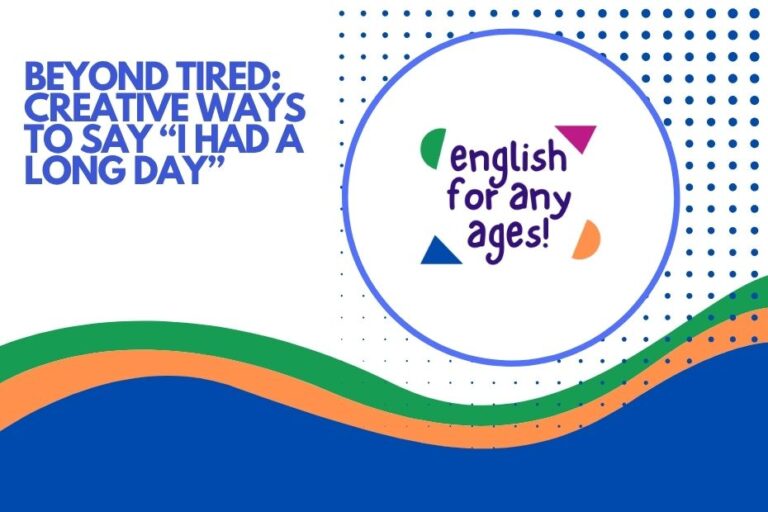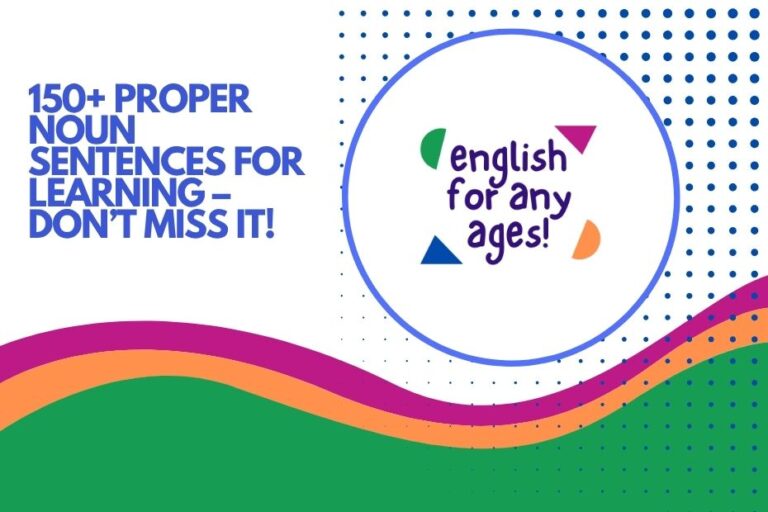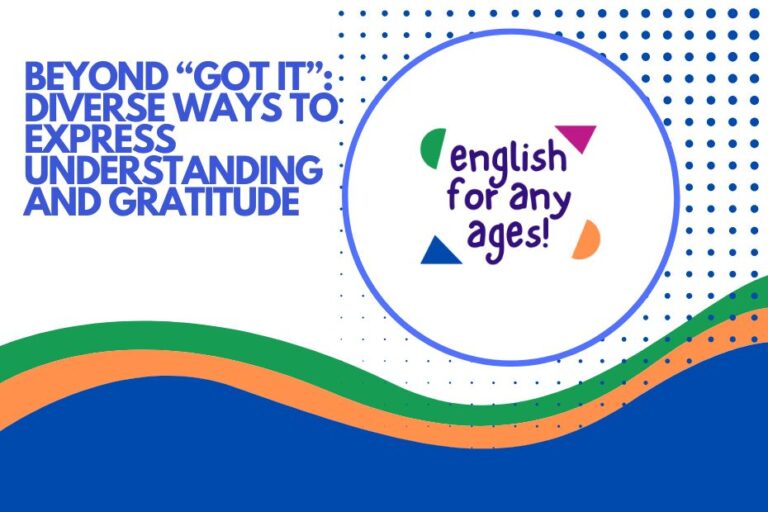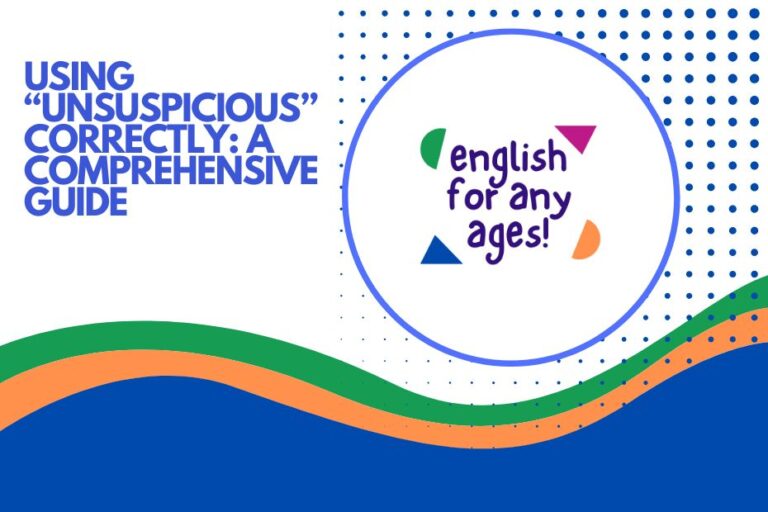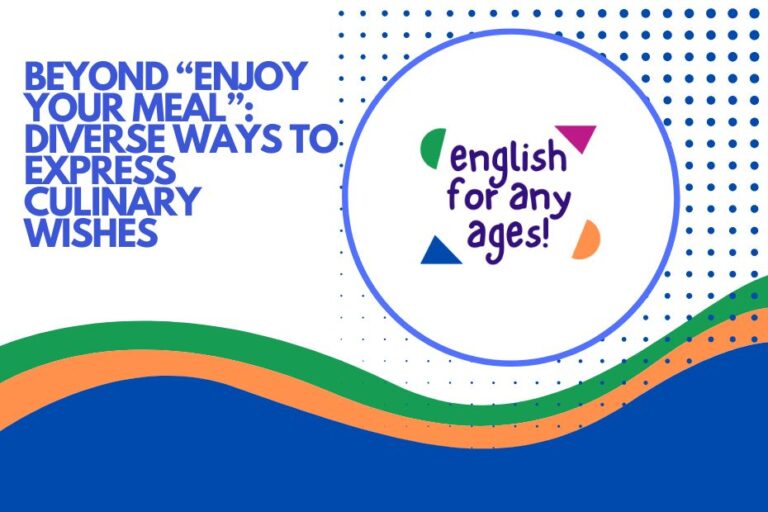Other Ways to Say “Excuse My Ignorance”: A Comprehensive Guide
Understanding how to politely acknowledge a lack of knowledge is a crucial skill in effective communication. Saying “Excuse my ignorance” can sometimes sound overly formal or even self-deprecating.
This article explores various alternative phrases that convey the same meaning with different nuances, suitable for diverse contexts. Mastering these alternatives will enhance your communication skills, allowing you to express yourself more confidently and appropriately.
This guide is beneficial for English language learners, professionals seeking to refine their communication style, and anyone looking to expand their vocabulary and express themselves more precisely.
Table of Contents
- Introduction
- Definition and Context
- Structural Breakdown
- Types and Categories of Alternatives
- Examples
- Usage Rules
- Common Mistakes
- Practice Exercises
- Advanced Topics
- FAQ
- Conclusion
Definition and Context
The phrase “Excuse my ignorance” is a polite way of admitting a lack of knowledge on a particular subject before asking a question or making a statement. It’s used to soften the potential impact of revealing one’s unfamiliarity with the topic.
However, its directness can sometimes be perceived as overly formal or even a bit self-deprecating. The alternatives explored in this article aim to provide more nuanced and context-appropriate ways to express the same sentiment.
These alternatives can range from direct questions that imply a lack of knowledge to more subtle phrases that acknowledge a limited understanding. The key is to choose the phrase that best suits the situation, your relationship with the speaker, and the overall tone of the conversation.
The function of these phrases is primarily to seek information while minimizing potential embarrassment or judgment. They serve as a social lubricant, signaling humility and a willingness to learn. The context in which these phrases are used is crucial. A formal business meeting requires a different approach than a casual conversation with friends. Similarly, discussing a complex technical issue with an expert calls for different phrasing than asking a simple question in a familiar setting. Understanding these contexts and choosing the appropriate alternative is essential for effective and respectful communication.
Structural Breakdown
The structure of phrases used as alternatives to “Excuse my ignorance” varies depending on the specific phrase. However, they generally follow a pattern that includes an introductory element acknowledging a lack of knowledge, followed by a question or statement seeking clarification or information.
Let’s break down some common structural elements:
- Introductory Phrase: This sets the stage by indicating that the speaker is aware of a potential knowledge gap. Examples include “I’m not familiar with…”, “Correct me if I’m wrong…”, or “I might be mistaken, but…”.
- Question or Statement: This is the core of the phrase, where the speaker asks for information or offers a tentative statement for confirmation. Examples include “Could you explain…?”, “Is it accurate to say that…?”, or “My understanding is…”.
- Politeness Markers: These are words or phrases that soften the impact of the request or statement, making it more polite and less demanding. Examples include “please,” “if you don’t mind,” or “I was wondering.”
For example, consider the phrase “I’m not familiar with that term. Could you explain it briefly?”.
Here, “I’m not familiar with that term” is the introductory phrase, “Could you explain it briefly?” is the question, and the overall structure is designed to politely request information without explicitly stating “Excuse my ignorance.” The strategic use of these structural elements allows for a more nuanced and effective way to communicate a lack of knowledge.
Types and Categories of Alternatives
There are several categories of phrases you can use instead of “Excuse my ignorance,” each with its own subtle differences in meaning and appropriateness. Understanding these categories will allow you to choose the best phrase for any given situation.
Direct Questions
These are straightforward questions that directly seek the information you need. They imply a lack of knowledge without explicitly stating it.
This approach is best used in informal settings or when you are confident in your relationship with the speaker.
Seeking Clarification
These phrases focus on confirming your understanding of something. They acknowledge that you might have some knowledge but are unsure if it’s accurate.
This approach is useful when you want to appear engaged and interested in learning more.
Acknowledging Limited Knowledge
These phrases explicitly state that you have limited knowledge on the subject. This approach can be useful in formal settings or when you want to be upfront about your lack of expertise.
Polite Inquiries
These are phrased as gentle requests for information, often using softening language like “I was wondering” or “if you don’t mind.” This approach is suitable for situations where you want to be particularly respectful or avoid appearing demanding.
Humble Assertions
These phrases involve making a tentative statement about the subject, followed by a request for confirmation or correction. This approach can be useful when you have some understanding but are unsure if it’s entirely accurate.
Examples
To illustrate the different categories of alternatives, here are some examples. Each category includes a variety of phrases with slightly different nuances.
Direct Questions Examples
These examples pose a straightforward question, implying a lack of prior knowledge. They are suitable for informal and relatively simple inquiries.
The following table provides a wide range of examples to illustrate the variety possible within this category.
| Example | Context |
|---|---|
| “What does that acronym stand for?” | Informal conversation about a technical topic. |
| “How does this machine work?” | Asking a colleague about a piece of equipment. |
| “Could you explain that again?” | Requesting clarification during a presentation. |
| “What’s the best way to do this?” | Seeking advice from a more experienced person. |
| “Where can I find more information about this?” | Seeking resources for further learning. |
| “What are the key benefits of this approach?” | Enquiring about the advantages of a certain method. |
| “How is this different from the previous version?” | Comparing features or updates of a product. |
| “What are the common pitfalls to avoid?” | Asking about potential problems or mistakes. |
| “How long does it typically take to complete this task?” | Asking for an estimated time frame for a project. |
| “What’s the deadline for this project?” | Inquiring about the due date of a task. |
| “How do I access the shared drive?” | Asking for instructions to access a network resource. |
| “What software do I need to use for this?” | Inquiring about necessary tools for a project. |
| “What’s the company policy on this matter?” | Asking about official rules or guidelines. |
| “How do I submit my expenses?” | Seeking instructions on financial procedures. |
| “What’s the dress code for the event?” | Asking about appropriate attire for a gathering. |
| “How do I book a meeting room?” | Inquiring about the process of reserving a space. |
| “What are the lunch options available?” | Asking about dining choices at a conference. |
| “How do I connect to the Wi-Fi?” | Seeking instructions for accessing the internet. |
| “What’s the procedure for requesting time off?” | Inquiring about the process for requesting leave. |
| “How do I contact the IT department?” | Asking for contact information for technical support. |
| “What’s the protocol for handling confidential information?” | Inquiring about guidelines for sensitive data. |
| “How do I update my personal information in the system?” | Asking for instructions to modify personal details. |
| “What resources are available for professional development?” | Inquiring about opportunities for career advancement. |
| “What’s the best way to learn this new software?” | Seeking advice on efficient learning methods. |
Seeking Clarification Examples
These examples focus on confirming or clarifying your understanding of something already mentioned. They show engagement and a desire to learn more accurately.
The table below provides a comprehensive set of examples to illustrate the subtle differences in these phrases.
| Example | Context |
|---|---|
| “So, if I understand correctly, you’re saying…?” | Confirming understanding during a discussion. |
| “Are you suggesting that we should…?” | Seeking confirmation of a proposed action. |
| “Just to be clear, does that mean…?” | Ensuring accurate comprehension of a statement. |
| “When you say ‘X,’ do you mean ‘Y’?” | Clarifying the definition of a term. |
| “So the main takeaway is…?” | Summarizing the key point of a presentation. |
| “If I’m not mistaken, this approach involves…?” | Tentatively describing a method and seeking confirmation. |
| “Is it accurate to say that…?” | Checking the accuracy of a statement. |
| “Am I right in thinking that…?” | Seeking validation of an assumption. |
| “To make sure I’m on the same page, is this correct…?” | Ensuring mutual understanding during a project discussion. |
| “Are we aiming for a specific target audience?” | Clarifying the intended recipients of a message. |
| “Is there a particular style guide we should follow?” | Confirming formatting guidelines for a document. |
| “Are there any specific tools or software we need to use?” | Checking required resources for a task. |
| “Is there a preferred method for data collection?” | Clarifying the optimal approach for gathering information. |
| “Are there any key metrics we should be tracking?” | Asking about essential performance indicators. |
| “Is there a specific reporting format we should adhere to?” | Confirming the required structure for reports. |
| “Are there any limitations or constraints we should be aware of?” | Asking about potential restrictions or obstacles. |
| “Are there any specific stakeholders we need to consult with?” | Identifying key individuals to involve in the process. |
| “Is there a designated communication channel for updates?” | Confirming the proper platform for sharing progress. |
| “Are there any legal or compliance requirements we need to consider?” | Asking about regulatory obligations for the project. |
| “Are there any specific security protocols we need to follow?” | Confirming safety measures for handling sensitive data. |
| “Are there any best practices we should be implementing?” | Asking about recommended approaches for optimal performance. |
| “Are there any templates or examples we can reference?” | Checking the availability of helpful resources. |
| “Are there any training materials available for this software?” | Asking about resources for learning new tools. |
| “Are there any common issues we should be prepared for?” | Asking about potential problems and solutions. |
Acknowledging Limited Knowledge Examples
These examples directly admit a lack of knowledge on the subject. They are suitable for formal situations or when you want to be upfront about your level of expertise.
This approach fosters transparency and encourages helpful explanation. Detailed examples are provided in the table below.
| Example | Context |
|---|---|
| “I’m not familiar with that concept. Could you elaborate?” | Asking for more information about an unfamiliar topic. |
| “I haven’t encountered that before. Can you explain it to me?” | Admitting unfamiliarity with something new. |
| “My understanding of this is limited. Can you provide some background?” | Acknowledging a partial understanding and requesting more context. |
| “I’m relatively new to this area. What are the key things I should know?” | Expressing inexperience and seeking essential information. |
| “I don’t have much experience with this. Could you walk me through it?” | Admitting a lack of experience and requesting guidance. |
| “I’m still learning about this. What are some common misconceptions?” | Expressing a learning process and addressing potential errors. |
| “I’m not an expert in this field. What are the fundamental principles?” | Acknowledging a lack of expertise and seeking basic knowledge. |
| “I’m not entirely sure how this works. Can you give me a brief overview?” | Expressing uncertainty and requesting a summary. |
| “I’m not well-versed in this subject. What resources would you recommend?” | Acknowledging a lack of knowledge and seeking learning materials. |
| “I have a limited grasp of this topic. Can you explain it in simpler terms?” | Expressing a partial understanding and requesting clarification. |
| “I’m not entirely clear on the specifics. Could you provide more details?” | Expressing uncertainty and requesting additional information. |
| “I’m not fully up to speed on the latest developments. Can you update me?” | Acknowledging a lack of current knowledge and seeking an update. |
| “I’m not sure I fully understand the implications. Can you clarify the impact?” | Expressing uncertainty and requesting an explanation of consequences. |
| “I’m not completely familiar with the terminology. Can you define some key terms?” | Acknowledging a lack of familiarity with technical language and seeking definitions. |
| “I’m not entirely confident in my understanding. Can you verify my assumptions?” | Expressing uncertainty and requesting confirmation of beliefs. |
| “I’m not fully aware of the context. Can you provide some background information?” | Acknowledging a lack of awareness and seeking contextual details. |
| “I’m not entirely sure about the best approach. Can you suggest a method?” | Expressing uncertainty and seeking guidance on an optimal strategy. |
| “I’m not completely clear on the objectives. Can you outline the goals?” | Acknowledging a lack of clarity and seeking a summary of targets. |
| “I’m not fully informed about the regulations. Can you explain the rules?” | Expressing a lack of knowledge and seeking an explanation of guidelines. |
| “I’m not entirely certain about the timeline. Can you provide a schedule?” | Acknowledging a lack of certainty and seeking a project calendar. |
| “I’m not completely sure about the budget. Can you clarify the financial constraints?” | Expressing a lack of clarity and seeking an explanation of financial limits. |
| “I’m not fully aware of the resources available. Can you list the support systems?” | Acknowledging a lack of awareness and seeking a summary of assistance options. |
| “I’m not entirely confident in my ability. Can you offer some training?” | Expressing uncertainty and seeking skills development opportunities. |
| “I’m not completely clear on the process. Can you describe the steps?” | Acknowledging a lack of clarity and seeking a procedural overview. |
Polite Inquiries Examples
These examples use softer language to make a request for information more gentle and respectful. They are suitable for formal settings or when speaking to someone in a position of authority.
The following table provides a wide variety of examples to illustrate the subtle nuances possible with this approach.
| Example | Context |
|---|---|
| “I was wondering if you could explain that in more detail.” | Politely requesting a more thorough explanation. |
| “If you don’t mind me asking, how does this process work?” | Politely inquiring about a process. |
| “Could you perhaps shed some light on this issue?” | Politely requesting clarification on a problem. |
| “I’d be grateful if you could clarify this point.” | Expressing gratitude for clarification. |
| “Would you be able to tell me more about…?” | Politely requesting more information. |
| “I’m curious to know how this is implemented.” | Expressing polite curiosity about implementation. |
| “I’d appreciate it if you could explain the rationale behind this decision.” | Politely requesting an explanation of reasoning. |
| “If it’s not too much trouble, could you elaborate on…?” | Politely requesting elaboration. |
| “I’m interested in learning more about this topic.” | Expressing polite interest in learning. |
| “I’d be keen to understand the next steps in this process.” | Politely expressing interest in understanding the plan. |
| “I was hoping you could provide some guidance on this matter.” | Politely requesting advice on a subject. |
| “If you have a moment, could you share your insights on this topic?” | Politely requesting expertise on a subject. |
| “I’d be thankful if you could clarify the best practices.” | Politely expressing gratitude for an explanation of standards. |
| “Would you be willing to share your perspective on this issue?” | Politely requesting an opinion on a problem. |
| “I’m hoping to gain a better understanding of this process.” | Expressing a polite desire to improve understanding. |
| “If it’s convenient, could you explain the background of this project?” | Politely requesting an explanation of project origins. |
| “I’d be delighted if you could walk me through this procedure.” | Politely expressing delight at a procedural walkthrough. |
| “Would you be kind enough to share your thoughts on this situation?” | Politely requesting an opinion on a circumstance. |
| “I’d be honored if you could offer some advice on this challenge.” | Politely expressing respect in requesting tips on a problem. |
| “Would you be so kind as to explain the context of this decision?” | Politely requesting an explanation of the setting of a decision. |
| “I’m eager to learn more about the intricacies of this system.” | Expressing polite eagerness to learn. |
| “If you have the time, could you elaborate on the benefits of this approach?” | Politely requesting an explanation of the advantages of a method. |
| “I’d appreciate it greatly if you could clarify the limitations of this method.” | Politely expressing appreciation for an explanation of restrictions. |
| “Would you consider sharing your expertise on this subject?” | Politely requesting expertise on a subject. |
Humble Assertions Examples
These examples involve making a tentative statement about the subject, followed by a request for confirmation or correction. They show that you have some understanding but are open to being corrected.
This approach encourages dialogue and collaborative learning. The table below provides a comprehensive set of examples to illustrate the nuances of these phrases.
| Example | Context |
|---|---|
| “I might be mistaken, but my understanding is that…?” | Expressing a tentative understanding and seeking correction. |
| “Correct me if I’m wrong, but I believe this involves…?” | Seeking correction on a belief. |
| “As far as I know, this means…, but I’m not entirely sure.” | Expressing incomplete knowledge and requesting confirmation. |
| “My impression is that…, but I could be off base.” | Expressing an impression and acknowledging potential inaccuracy. |
| “I’m under the impression that…, is that correct?” | Seeking confirmation of an impression. |
| “From my limited knowledge, this seems to involve…?” | Expressing limited knowledge and seeking confirmation. |
| “I’m guessing that…, but I’m open to correction.” | Expressing a guess and welcoming correction. |
| “If I’m not mistaken, the purpose of this is…, is that right?” | Seeking confirmation of a perceived purpose. |
| “My current understanding is that…, but I’m happy to be corrected.” | Expressing a current understanding and welcoming correction. |
| “I believe this is related to…, but I’m not completely sure.” | Expressing a belief with some uncertainty. |
| “I have a feeling that…, is there any truth to that?” | Expressing an intuition and seeking verification. |
| “I suspect that…, is that a fair assessment?” | Expressing a suspicion and seeking validation. |
| “My intuition tells me that…, but I’m open to other perspectives.” | Expressing an intuition and welcoming alternative views. |
| “I’m assuming that…, is that a safe assumption?” | Expressing an assumption and seeking reassurance. |
| “I’m working under the assumption that…, is that reasonable?” | Expressing an underlying premise and seeking approval. |
| “My understanding is evolving, but I believe this involves…?” | Expressing a developing knowledge and seeking confirmation. |
| “I’m in the process of learning, and my current view is…, is that accurate?” | Expressing a learning journey and seeking accurate perspective. |
| “My perspective is still developing, but I think this means…?” | Expressing a developing viewpoint and seeking confirmation. |
| “I’m still exploring this topic, and I’m starting to think that…?” | Expressing an exploratory mindset and seeking validation. |
| “I’m still trying to understand this, and my current interpretation is…?” | Expressing an effort to comprehend and seeking approval. |
| “I’m still wrapping my head around this, and I’m starting to believe that…?” | Expressing cognitive processing and seeking confirmation. |
| “I’m still piecing this together, and my current hypothesis is…?” | Expressing an analytical approach and seeking validation. |
| “I’m still formulating my opinion, but I’m leaning towards…?” | Expressing opinion formation and seeking approval. |
Usage Rules
The proper use of these alternative phrases depends heavily on the context and your relationship with the speaker. Here are some general guidelines:
- Formality: Use direct questions and seeking clarification phrases in informal settings. Acknowledge limited knowledge and polite inquiries are better suited for formal situations.
- Relationship: Be more direct with people you know well. Use more polite and humble phrases with superiors or those you don’t know well.
- Topic Complexity: When discussing complex or technical topics, it’s often best to acknowledge limited knowledge directly.
- Tone: Pay attention to your tone of voice. Even the most polite phrase can sound sarcastic if delivered with the wrong tone.
There are few strict exceptions to these rules, but common sense should prevail. For example, even in a formal setting, a quick, direct question might be appropriate if time is limited and the information is crucial.
The key is to be mindful of your audience and the overall situation.
Common Mistakes
Here are some common mistakes to avoid when using alternatives to “Excuse my ignorance”:
- Being Overly Vague: Asking a question that is too general can make you seem unprepared or uninterested. Instead of “Tell me about this,” try “Could you explain the key features of this product?”
- Using Sarcasm: Avoid using these phrases sarcastically, as it can be offensive. For example, saying “Oh, I’m sure you’re going to explain this in a way *I* can understand” is likely to be poorly received.
- Being Too Self-Deprecating: While humility is good, being overly self-deprecating can undermine your credibility. Avoid phrases like “I’m just a simpleton, but…”
- Using Inappropriate Language: Ensure the language you use is appropriate for the context. Avoid slang or overly casual language in formal settings.
Here are some examples of correct and incorrect usage:
| Incorrect | Correct |
|---|---|
| “So, what’s this all about?” (too vague) | “Could you give me a brief overview of this project?” |
| “I’m too dumb to understand this.” (too self-deprecating) | “I’m not entirely familiar with this. Could you explain it in simpler terms?” |
| “Yeah, right, like I’m gonna get this.” (sarcastic) | “I’m interested in learning more about this. Could you provide some additional information?” |
Practice Exercises
Test your understanding with these practice exercises. Choose the best alternative phrase for each situation.
-
Question: You are in a meeting and don’t understand a technical term. Which phrase is most appropriate?
- “What’s that?”
- “I’m not familiar with that term. Could you explain it?”
- “Like I’d know what that means.”
Answer: b
-
Question: You are talking to a friend about a movie you haven’t seen. Which phrase is most appropriate?
- “What’s that movie about?”
- “I’m not entirely sure what that movie is about.”
- “Excuse my ignorance, but what’s the plot?”
Answer: a
-
Question: You are in a lecture and want to clarify a point the speaker made. Which phrase is most appropriate?
- “Huh?”
- “So, if I understand correctly, you’re saying…?”
- “I’m too dumb to understand this.”
Answer: b
-
Question: You are talking to your boss about a new project and want to show interest in learning more. Which phrase is most appropriate?
- “What’s this project?”
- “I’m interested in learning more about this project.”
- “I couldn’t care less about this project.”
Answer: b
-
Question: You are in a discussion and want to make a tentative statement. Which phrase is most appropriate?
- “I know everything.”
- “I might be mistaken, but my understanding is that…?”
- “I have no clue.”
Answer: b
-
Question: You are in a formal presentation and want to ask a question politely. Which phrase is most appropriate?
- “What?”
- “I was wondering if you could explain that in more detail.”
- “I’m too confused to even ask.”
Answer: b
-
Question: You are having a casual conversation and need a quick clarification. Which phrase is most appropriate?
- “What does that mean?”
- “I am unfamiliar with the terminology.”
- “I am completely ignorant of this subject.”
Answer: a
-
Question: You are in a training session and want to ask for a demonstration. Which phrase is most appropriate?
- “Show me how.”
- “Could you walk me through the process?”
- “I will never understand this.”
Answer: b
-
Question: You are working in a team and want to confirm your understanding of a task. Which phrase is most appropriate?
- “Am I doing this right?”
- “Just to be clear, does that mean…?”
- “I have no idea what I’m doing.”
Answer: b
-
Question: You are in a meeting with senior management and need to ask about company policy. Which phrase is most appropriate?
- “What’s the policy?”
- “Would you be able to tell me more about the company policy regarding this matter?”
- “I don’t care about company policy.”
Answer: b
Advanced Topics
For advanced learners, consider exploring the subtle nuances of these phrases in different cultural contexts. What might be considered polite in one culture could be seen as overly formal or even insincere in another.
Additionally, explore the use of nonverbal cues, such as facial expressions and body language, to enhance the effectiveness of these phrases. A genuine smile and open posture can make even the most direct question seem more polite and approachable.
Another area to investigate is the use of these phrases in written communication, where tone can be more difficult to convey. Carefully consider your word choice and sentence structure to ensure your message is clear, concise, and respectful.
FAQ
- Q: Is it always necessary to use an alternative to “Excuse my ignorance”?
A: No, not always. “Excuse my ignorance” is perfectly acceptable in many situations. However, using alternatives can make your communication more nuanced and context-appropriate.
- Q: Which alternative is the most

